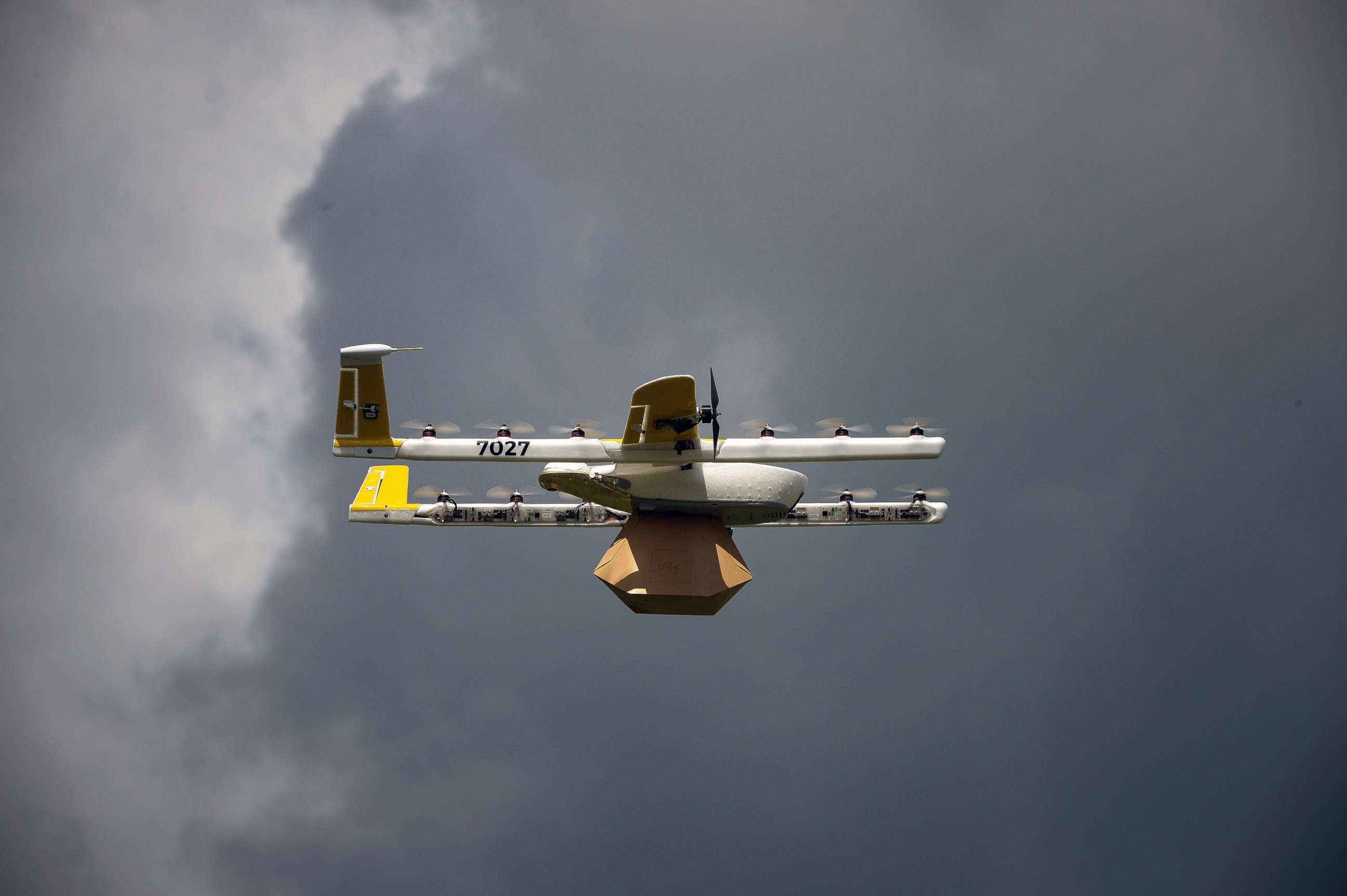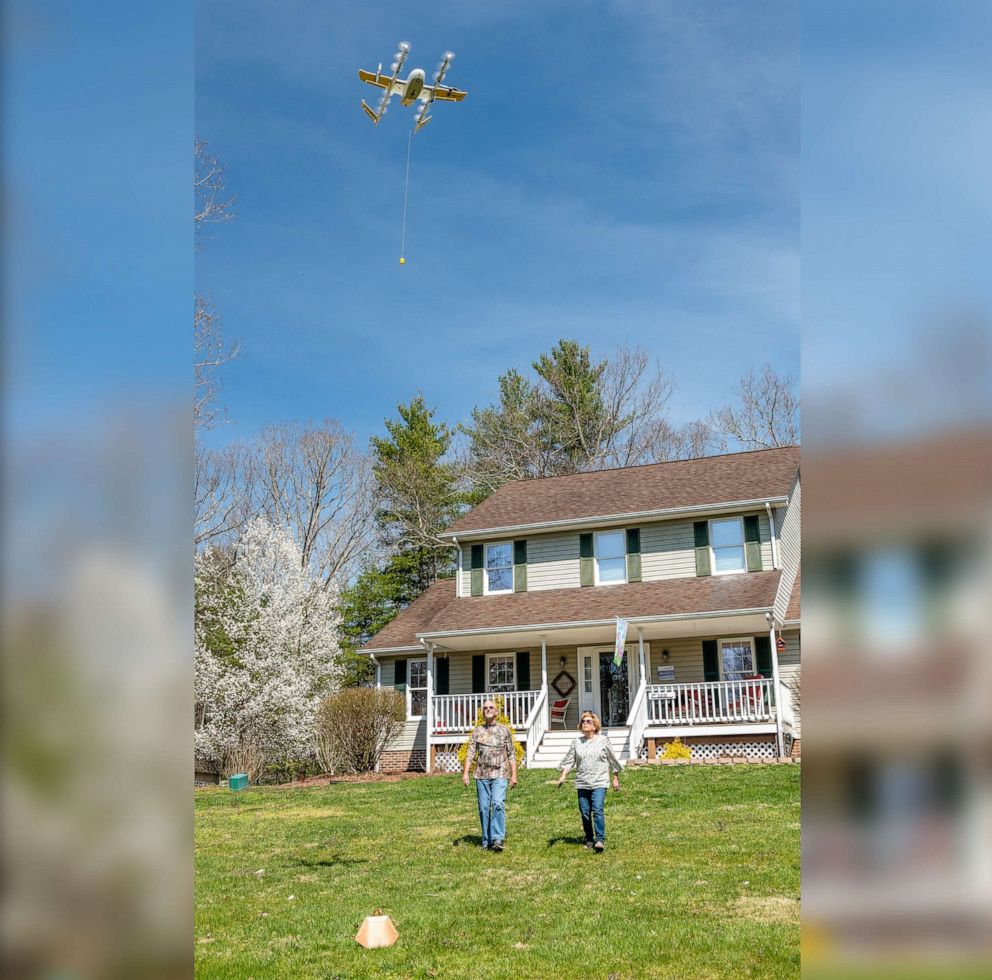With FAA certification, Google's drone company set to start deliveries in Virginia
It's the first drone delivery company to be awarded air carrier certification.
With the Federal Aviation Administration's historic certification, Wing Aviation’s drone deliveries are set to arrive in Virginia.
U.S. Department of Transportation Secretary Elaine Chao announced Tuesday that the FAA awarded air carrier certification to Google’s Wing Aviation, the first drone delivery company to be awarded one, according to a FAA news release.
With the certification in hand, Wing Aviation can turn its tests into commercial deliveries in the U.S.
Packages from local businesses are set to be delivered in Blacksburg and Christiansburg, Virginia, after the company consults with the local community, according to the release and a Medium post by the company. The goal is to launch a delivery trial later this year, Wing wrote in its Medium post.
“For communities across the country, this presents new opportunities. Goods like medicine or food can now be delivered faster by drone, giving families, shift workers, and other busy consumers more time to do the things that matter,” Wing wrote in the Medium post Tuesday.

Since graduating in July 2018 from Google X, a division of Google’s parent company, Alphabet, that incubates innovative technologies, Wing Aviation is now an independent Alphabet business, according to Google X’s website.
Wing Aviation conducted over 70,000 test flights with more than 3,000 deliveries to Australian doorsteps, driveways and backyards over several years in order to meet the FAA’s safety requirements to qualify, according to the news release and Medium post.
“This is an important step forward for the safe testing and integration of drones into our economy,” Chao said in a statement. “Safety continues to be our Number One priority as this technology continues to develop and realize its full potential.”
Wing Aviation said their data showed a delivery by drone carried a lower risk to pedestrians than if the same trip was made by car, according to the company’s Medium post. The company stressed that drone delivery provides more independence to people who need assistance with mobility and that the all-electric drones will reduce traffic and pollution with zero carbon emissions.

Wing’s drones can fly up to 120 kilometers, or about 74.5 miles, per hour, and can fly up to 400 feet above the ground, according to Google X’s website. The first of Wing's drone deliveries were completed in 2014 in Queensland, Australia, where everything from dog treats to a first-aid kit were delivered to farmers. Two years later in 2016, Wing’s drones delivered burritos to Virginia Tech students, according to Google X’s website.
Through Wing’s app, users can order products, such as meals or medicine, to be delivered by drone. Wing currently operates in Australia and Finland, according to the company’s website.
Working with the Mid-Atlantic Aviation Partnership and Virginia Tech, Wing Aviation participated in the Transportation Department’s Unmanned Aircraft System Integration Pilot Program, according to the news release. The program works with both state and local governments, as well as private companies, to assess risks and successfully integrate drones into the airspace, according to the FAA’s website.

Mark Blanks, director of the Virginia Tech Mid-Atlantic Aviation Partnership, said that commercial delivery is one of the most significant ways to introduce the public to drones.
“But until now there hasn’t been a clear pathway for traditional aviation regulations, which were designed for manned aircraft, to accommodate it,” Blanks said in a statement. “That’s why this certificate is so significant: It’s a testament to Wing’s meticulous work and unwavering focus on safety, but it’s also a milestone for the industry because it demonstrates that there’s a way to do drone delivery under the current regulatory structure.”
In a report last June by the National Academies of Sciences, Engineering, and Medicine, the FAA was characterized as taking an "overly conservative" approach toward regulating drones and integrating them. Drones have often been feared for their potential to crash into planes, and operations were temporarily paused at the Newark Liberty International Airport in New Jersey in January due to drone activity.
ABC News' Christine Theodorou contributed to this report.




